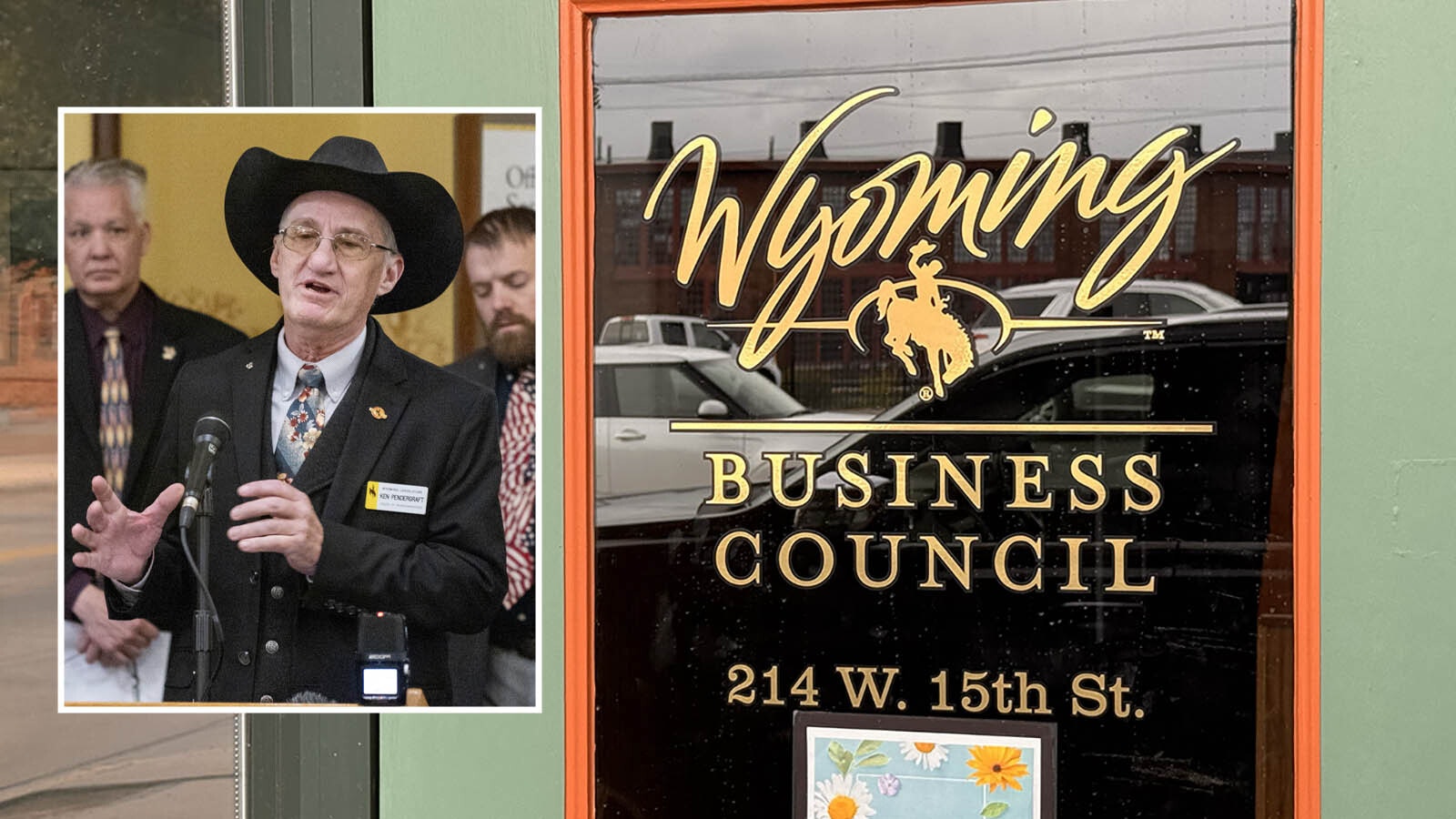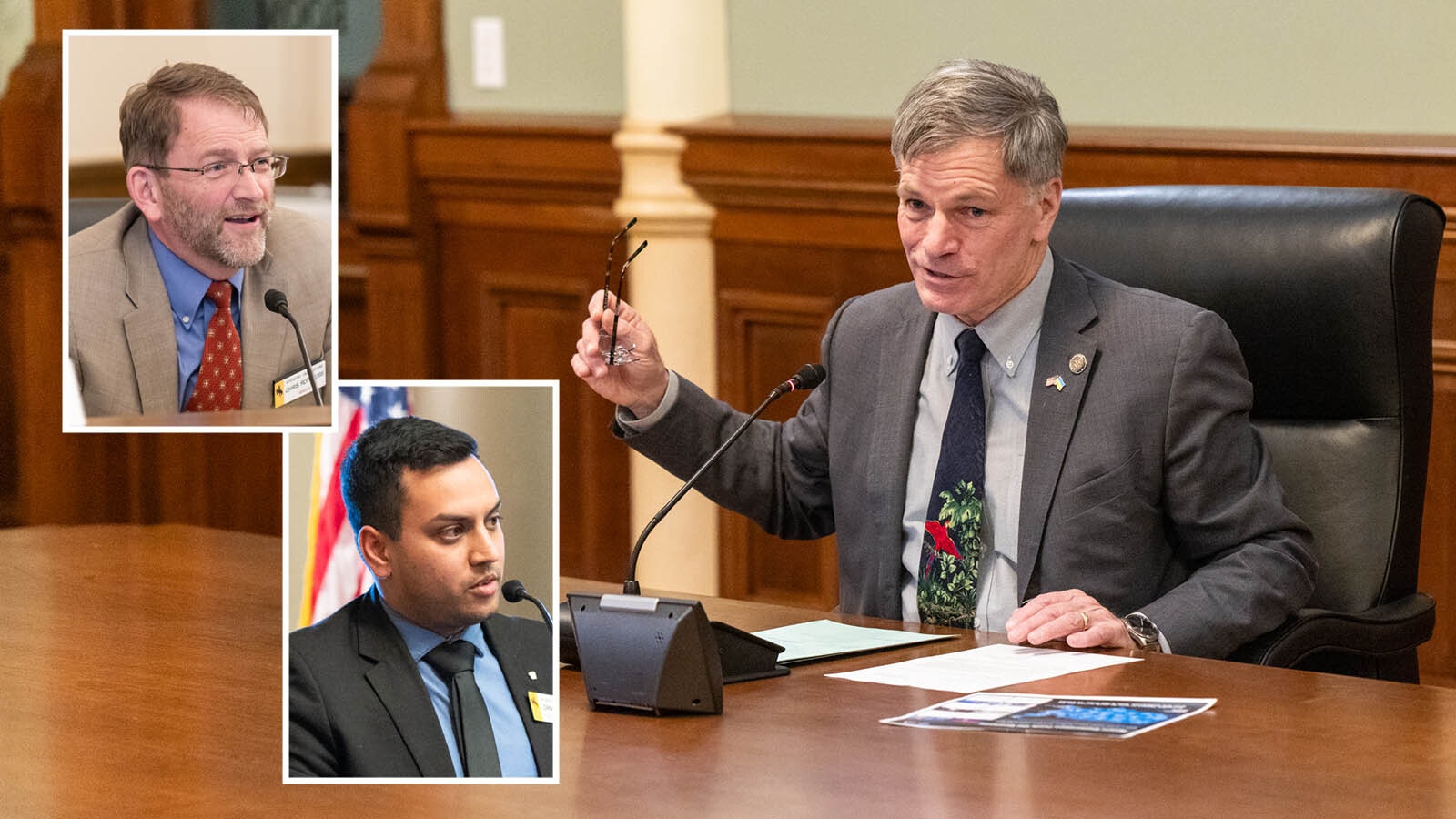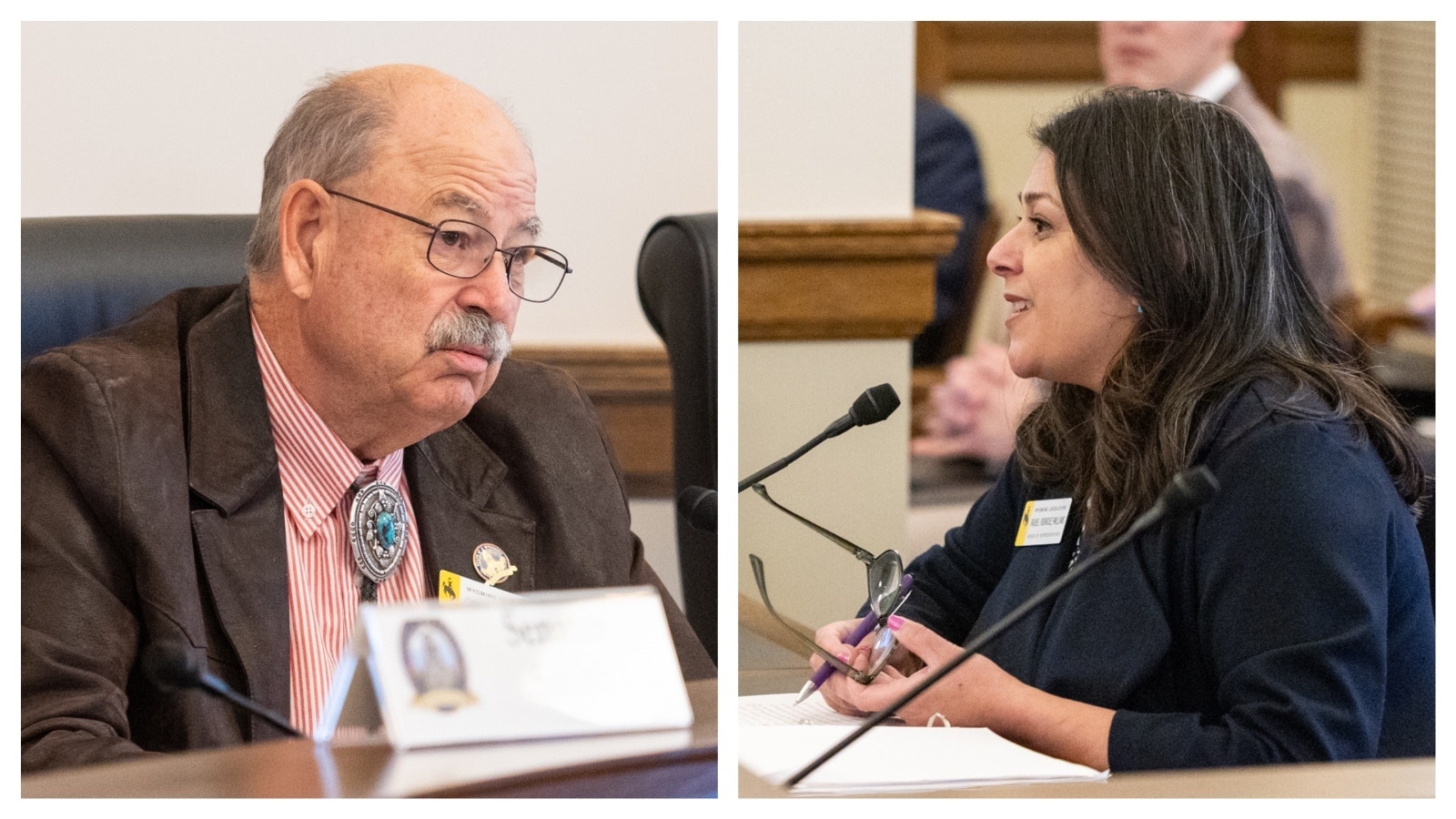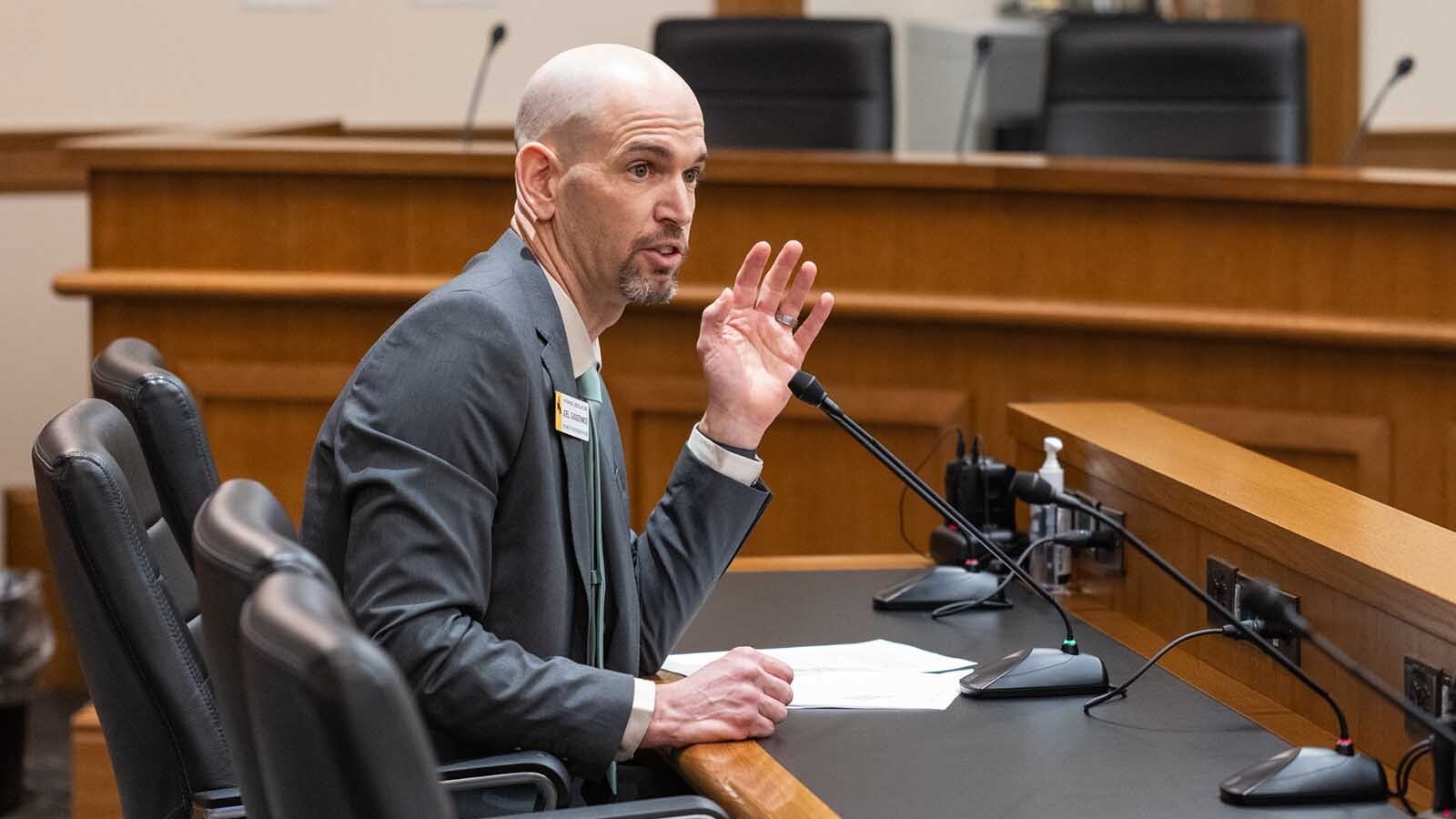By signing a bill into law last week that will protect public utility companies from wildfire-related litigation, Gov. Mark Gordon has significantly altered the landscape for wildfire relief in Wyoming.
The bill requires public utilities to prepare and submit wildfire mitigation plans. By doing so, the law will then protect them from some wildfire-related liabilities.
Over the last decade, wildfires have decimated Wyoming and the West, leading to large rate increases from utility and insurance companies, which has a trickle-down effect on rural electric cooperatives.
Many public utility companies argue that wildfire-related lawsuits drive their rates even higher.
The bill sponsor, state Rep. J.T. Larson, R-Rock Springs, told Cowboy State Daily on Thursday the purpose of the legislation is to “weed out” frivolous lawsuits and get down to the root problem of holding public utilities accountable for the actions they should be held accountable for.
“What this does is require some accountability from our public utilities because they have to submit mitigation plans, they have to follow those plans,” Larson said. “It really puts a lot of responsibility on to the public utilities to make sure that they are doing everything they can to prevent a wildfire from happening due to their equipment.”
California View
The Wyoming legislation basically takes the opposite course that the California Legislature is considering in its approach to wildfire litigation. Earlier this year, lawmakers in California expanded the possibility for litigation.
Senate Bill 222 would allow individuals, private insurers, and the state-run insurance plan to sue oil companies for damages they suffer from "climate disasters and extreme weather events."
In the years after the 2018 Camp fire that was caused by a downed PG&E power line, PG&E faced a barrage of civil and criminal lawsuits from fire victims, municipal governments and insurance companies.
According to Canary Media, as the company’s stock tanked, it filed for bankruptcy protection, and later pleaded guilty to 84 counts of involuntary manslaughter over fire deaths. In order to exit bankruptcy, the company paid out $23 billion to various plaintiffs and creditors.
The company had to lay off thousands of employees to help pay these costs and as a result, raised its rates. Canary reports that the average PG&E customer’s bill was set to rise 18% in 2023 and 32% by 2026.
On Wednesday, representatives from Rocky Mountain Power explained to the Wyoming Public Service Commission that their latest double-digit rate increase request is partially due to the cost of wildfires, which company officials said has been driving costs for insurance premiums up exponentially the last few years.
Larson also mentioned how in the devastating southern California fires earlier this year, three lawsuits were filed even before an official cause of the fires was determined.
“People are very sue-happy, they want to get money from the people who have it,” he said. “When somebody sues a utility frivolously, those costs are going to be passed on to the consumer.”
Wyoming Approach
The mitigation bill originated out of a working group representing a coalition of interests, including members of the oil and gas industry, electric co-ops, the Wyoming Office of Consumer Advocate, landowners and insurance companies.
“It’s very rare we get this level of agreement, especially when we’re facing potential cost increases with this,” said Anthony Ornelas, an administrator with the Office of Consumer Advocate, during a hearing last month.
Pete Obermueller, president of the Petroleum Association of Wyoming, said the law could also protect oil and gas companies. He still expects rates to increase however under the mandate for mitigation plans, but considers that a necessary evil in the grand scheme of things.
“Litigation causes a serious economic damage to utilities,” he said.
Thom Carter, vice president of Government Affairs at Rocky Mountain Power, said during the hearing that the bill protects his company from “runaway juries or problematic litigation.”
The Wyoming Legislature attempted to address the damage that was caused as a result of the historic 2024 wildfire season in the state, providing $49 million in grants from the state’s general fund to pay for restoring grass and preventing noxious weeds, and a $25 million loan program for those who experienced fire damage.
How It Works
The mitigation plans would need to be submitted to the Wyoming Public Service Commission (PSC), which would then allow for public input on the plans and the possibility to reject plans if they’re not stringent enough. It also requires periodic updates on these plans. Any plan approved by the commission would be considered “reasonable and prudent preparation for wildfire risk.”
“This makes it a public process. That’s an important piece to it,” Larson said. “Firefighters, all local people are going to be invited to sit at the table and take a look at the plans.”
Rocky Mountain Power and Black Hills already engage wildfire mitigation plans, but they are voluntary and do not exist under state oversight. The PSC also already has vegetation standards that utility companies must follow.
Utah passed a similar piece of legislation last year that makes these mitigation plans mandatory, which Carter said prompted the company to create plans in every state where it offers power.
Concerns Still Exist
Mark Aronowitz, secretary/treasurer of the Wyoming Trial Lawyers Association, however expressed concern in February that the legislation could block homeowners from suing over wildfire damage that may have been caused by a power line.
As long as a company had a wildfire mitigation plan in place, he believes it’s “borderline impossible” to submit a claim.
An amendment was successfully added to the bill allowing for litigation related to injury or death caused in a wildfire.
This would appear to still allow for cases like the one involving Clark resident Jerry Ruth, who filed a lawsuit claiming negligence by a power cooperative and tree-trimming company he accused of sparking a 2021 fire that led to the death of his wife. Ruth ended up settling this case in late 2023.
“There’s ways for somebody to get around the liability protection put in statute,” Larson said. “It’s just providing some certainty for utilities.”
But the bill still provides an enormous amount of protection for utility companies. If a wildfire is linked to a utility, a lawsuit would have to prove that personal losses suffered were due to the utility violating its own wildfire mitigation plan.
The legislation would also establish a four-year statute of limitations for filing claims.
Brandon Vick, Northwest regional vice president with the National Association of Mutual Insurance Companies, questioned in February why there would be any liability or damage protection for property damage that’s caused by a utility’s equipment. Litigation is a major cost driver in the insurance industry, Vick said, and he said insurers need to be able to ensure they’re able to recoup their losses if there is a guilty party involved.
“We generally favor a system in which businesses, individuals, and even quasi-government agencies are held responsible for the damages that they may cause,” Vick said.
Larson didn’t deny this possibility, but said landowners should have to pay smaller increases for the better good.
“If it is going to increase, it’s not going to amount to a whole lot,” he said. “I would much rather pay an extra dollar per month than an extra $20 per month because they had to settle with a $1 billion settlement.”
The new law will go into effect July 1, right in time for the heart of the 2025 fire season.
Leo Wolfson can be reached at leo@cowboystatedaily.com.





